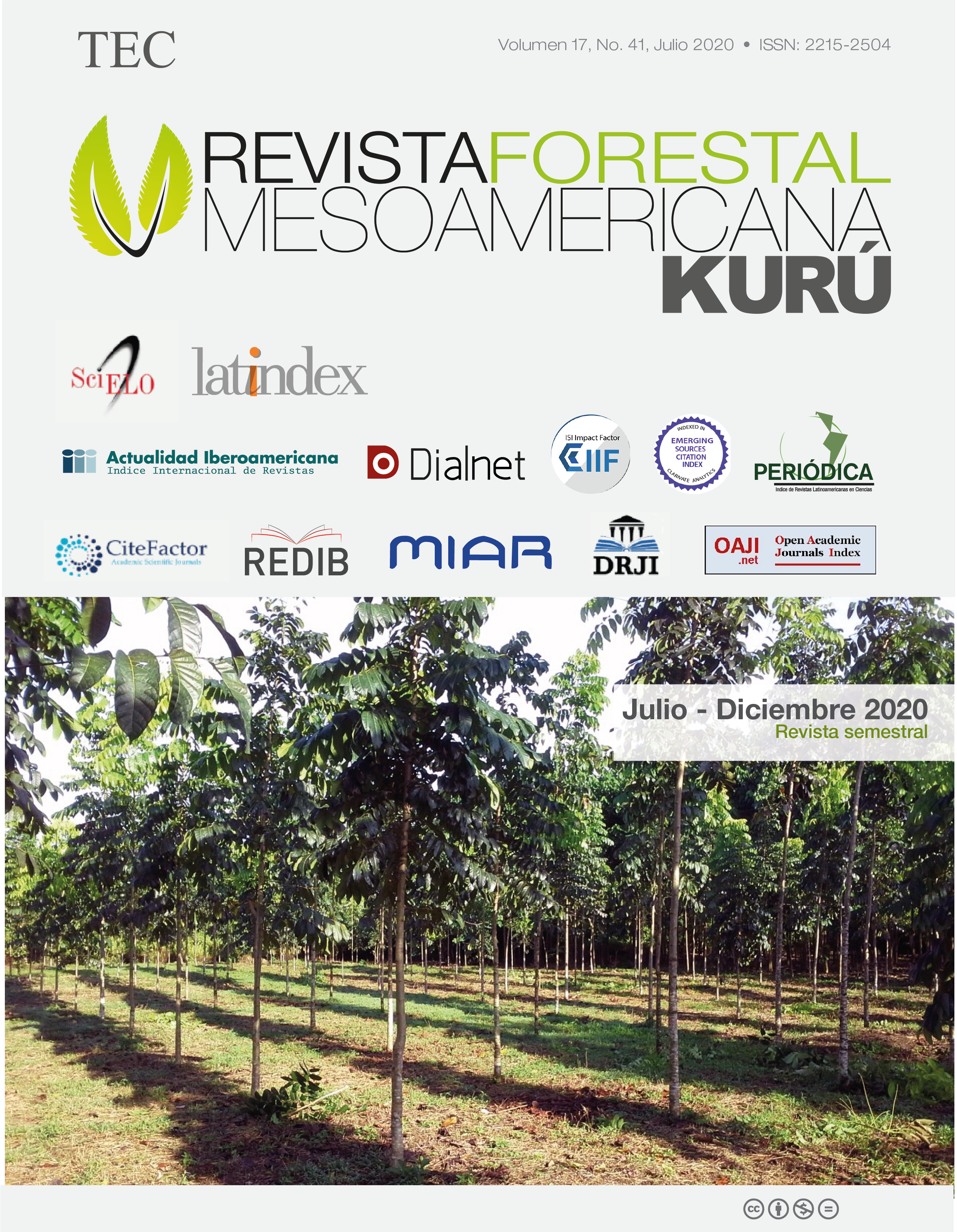Economic contribution of cedar wood (Cedrela odorata L.) as a shade tree in coffee plantations in Pérez Zeledón, Costa Rica
Main Article Content
Abstract
The study determined the economical contribution of cedar wood (Cedrela odorata L.) in agroforestry systems with coffee in Costa Rica. 26-coffee farms associated to CoopeAgri R.L. in Pérez Zeledón county. Cedar has been planted as a shade tree in coffee production areas in this county, with an average density of 214 trees/ha, which corresponds to a 7x7 m spacing, but it varies from 70 to 700 trees. Cedar in coffee plantations registers a growth rate of 2.5 cm/year in diameter, which allows it to reach 40 cm in dbh at 16 years of age. Planting cedar in coffee areas produce economical incomes from wood sales of approximately $ 5000ha-1 and a total commercial volume of 100 m3 ha-1 in 16 years. From this amount 60 % has commercial value for sawmill industry in its 6 m merchantable stem. Meanwhile, fuelwood represents 35 % of total volume, but only 8 % of the total tree value. Good silvicultural management techniques, like crown prunning and Hypsipyla grandella attack prevention, with an initial density of 277 trees (6 x 6 m that will be thinned to 12 x 6 m at age 8) may increase the wood value up to $7000ha-1. Cedar trees planted in agroforestry systems with coffee, is an excellent option that enhances higher incomes for producers.
Article Details

This work is licensed under a Creative Commons Attribution-NonCommercial-NoDerivatives 4.0 International License.
Revista Forestal Mesoamericana Kurú is licensed under CC BY-NC-ND 4.0
Al enviar un artículo a la Revista Forestal Mesoamericana kurú (RFMK), los autores ceden los derechos patrimoniales a la editorial de la RFMK una vez su manuscrito haya sido aprobado para publicación, autorizando a la RFMK a editarlo, reproducirlo, distribuirlo, y publicarlo en formato físico y/o electrónico. La titularidad de los derechos morales sobre los trabajos objeto de esta cesión seguirá perteneciendo a los autores.

